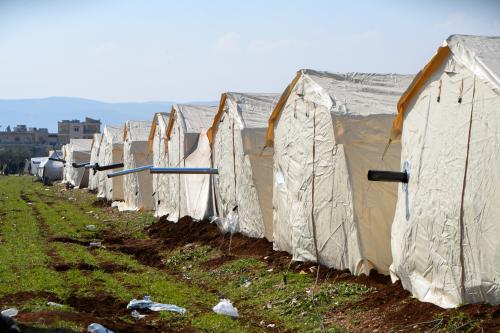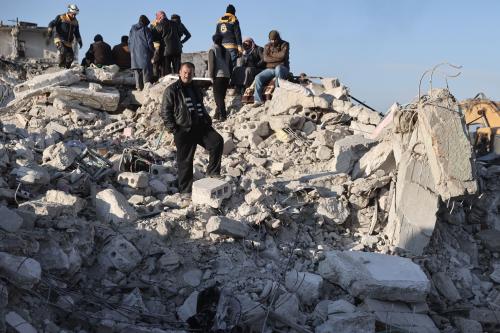2023
In many crisis situations, aid agencies are only able to provide assistance through negotiations with a variety of actors—armed groups, health authorities, community leaders—each with its own vested interests. Sometimes compromising basic principles is the price paid for being able to act. Humanitarian negotiations are life-and-death issues for people in need, but they also raise troubling political and ethical dilemmas for the organizations that are engaged in them.
On January 26, the Brookings-LSE Project on Internal Displacement and Doctors Without Borders/Médecins Sans Frontières (MSF) hosted a discussion on the compromises and negotiations the humanitarian aid community must contend with during crisis situations. Michael Neuman, research director with the Centre de Réflexion sur l’Action et les Savoirs Humanitaries at MSF, discussed the organization’s new book, Humanitarian Negotiations Revealed: The MSF Experience (Columbia University Press, 2012). He was joined by panelists William Garvelink, senior adviser, U.S. Leadership in Development at the Center for Strategic International Studies; Markus Geisser, deputy head of regional delegation for the International Committee for the Red Cross; and Rabih Torbay, vice president for international operations at International Medical Corps. Senior Fellow Elizabeth Ferris, co-director of the Project on Internal Displacement, provided introductory remarks and moderated the discussion.
After the program, panelists took audience questions.
Negotiating Humanitarian Access: How Far to Compromise to Deliver Aid
Agenda
-
January 26
-
Introduction and Moderator
 Elizabeth Ferris Former Brookings Expert, Research Professor, Institute for the Study of International Migration - Georgetown University @Beth_Ferris
Elizabeth Ferris Former Brookings Expert, Research Professor, Institute for the Study of International Migration - Georgetown University @Beth_Ferris -
Panelists
WGWilliam Garvelink Senior Adviser, U.S. Leadership in DevelopmentMGMarkus Geisser Deputy Head of Regional DelegationMNMichael Neuman Research Director, Centre de Réflexion sur l’Action et les Savior HumanitariesRTRabih Torbay Vice President for International Operations
-

